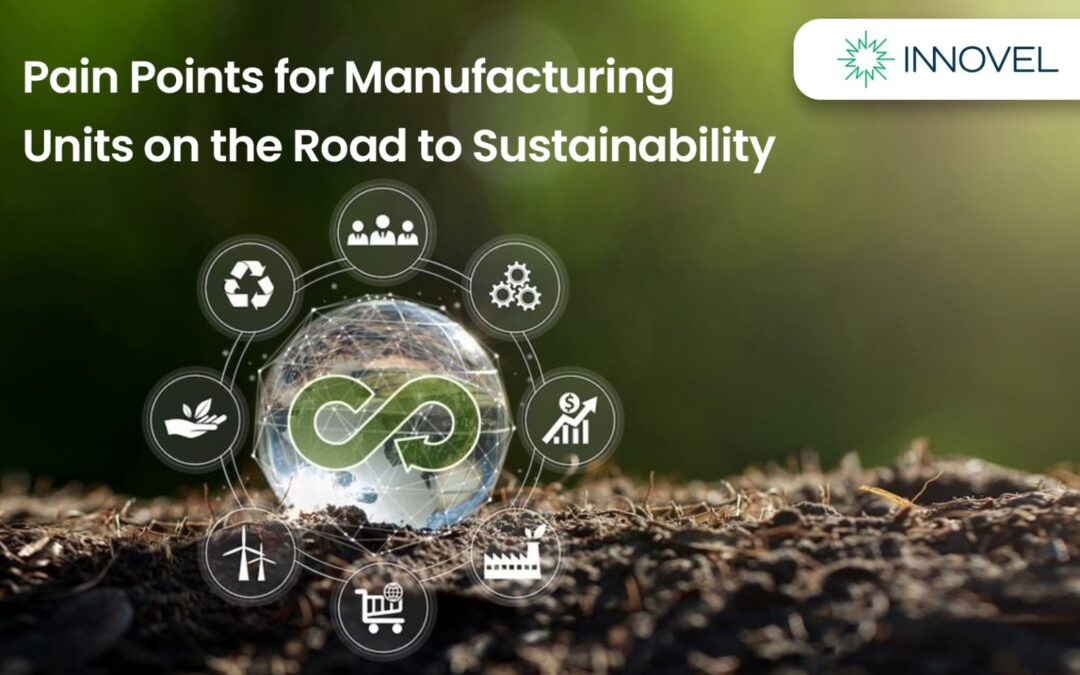Manufacturing industries across the globe are facing unprecedented pressure to adopt sustainable practices. However, despite growing awareness and commitment to environmental goals, many manufacturing units encounter significant obstacles. Below, we outline the key pain points manufacturers face in their pursuit of sustainability.
1. High Energy Consumption and Carbon Emissions
Manufacturing is inherently energy intensive. According to the International Energy Agency (IEA), industrial activity is responsible for 37% of global CO2 emissions. Many manufacturing processes rely on fossil fuels for energy, resulting in a significant carbon footprint. Transitioning to renewable energy sources like solar can be expensive, with concerns about the reliability of alternative energy in large-scale industrial settings.
Pain Point:
The high energy demands of manufacturing make it difficult to immediately switch to greener energy solutions without substantial capital investment. Manufacturers worry about both the initial costs and the potential impact on productivity during the transition.
2. Regulatory Compliance and Evolving Standards
Regulations surrounding carbon emissions, energy efficiency, and environmental impact are becoming more stringent. In the EU, for example, Approx 90% of manufacturers have reported a stronger focus on carbon neutrality due to increased regulatory pressure. Meeting these evolving standards often requires retrofitting older systems or adopting new technologies, which can be both time-consuming and costly.
Pain Point:
Manufacturers struggle to keep up with regulatory requirements while maintaining production efficiency. The risk of non-compliance can lead to penalties, fines, and damaged reputations, adding more stress to companies already facing tight margins.
3. Supply Chain Sustainability
For most manufacturing units, 80% of their carbon footprint lies within their supply chains, according to McKinsey. Ensuring that every element of the supply chain meets sustainability standards is a massive challenge. Suppliers in different regions may not adhere to the same environmental practices, making it difficult to enforce uniform sustainability goals across the board.
Pain Point:
Lack of visibility and control over supply chains makes it difficult for manufacturers to ensure sustainability across all suppliers. This also raises concerns about reputational damage if one part of the supply chain is found to be non-compliant with environmental goals.
4. Infrastructure and Technological Limitations
Many manufacturing units operate with aging infrastructure that is not equipped for sustainability initiatives. Updating these systems to meet modern energy efficiency and emissions standards often requires significant capital investment. According to the World Economic Forum, 53% of manufacturers report that outdated technology and infrastructure are major roadblocks to their sustainability efforts.
Pain Point:
The high costs and risks associated with retrofitting or upgrading manufacturing systems make it difficult for companies to move toward sustainability. Downtime during upgrades and the potential for disruption to the production process are key concerns.
5. Financial Constraints
Sustainability initiatives can require substantial upfront investment, and many manufacturers face financial constraints that limit their ability to pursue these projects. Deloitte reports that 64% of manufacturers worry about the ROI of sustainable initiatives, even though they acknowledge the long-term benefits.
Pain Point:
Manufacturers often hesitate to invest in sustainable solutions due to concerns over long-term profitability. High initial costs, coupled with uncertain ROI timelines, make it challenging to prioritize sustainability over short-term financial gains.
6. Skilled Workforce Shortage
Sustainability initiatives require specialized knowledge in areas like renewable energy, environmental management, and green technologies. However, manufacturers often struggle to find workers with the right skills to implement and manage these initiatives. The National Association of Manufacturers (NAM) found that 73% of manufacturers face difficulties in recruiting employees with the necessary sustainability expertise.
Pain Point:
Without a skilled workforce, manufacturers are unable to implement the sustainability projects that align with their goals, leaving them reliant on external consultants or struggling to build in-house expertise.
Conclusion:
While manufacturing units are eager to embrace sustainability, the path forward is fraught with significant challenges. High energy demands, evolving regulations, supply chain complexity, infrastructure limitations, financial concerns, and a shortage of skilled workers are all obstacles that slow progress toward achieving sustainability goals.
Manufacturers must find ways to address these pain points through innovative solutions and strategic partnerships that can help them overcome the roadblocks and transition to greener practices. Without a clear and structured approach to these challenges, achieving sustainability goals will remain a distant dream.
Innovel Website :- https://innovelenergy.com/

